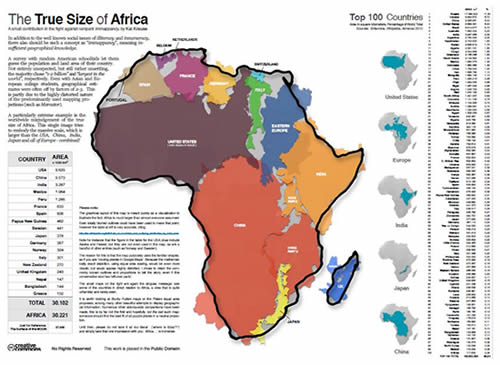Africa– The continent of opportunity
Sovereign Trust Limited – Timothy Mertens – January 2015
Africa is a giant continent. At over 30 million sq km it could comfortably accommodate the collective landmasses of the USA, China, India, Spain, Germany, Eastern Europe and the UK within its bounds. And of course it is not one coherent whole. It consists of 54 countries with diverse histories, economies, politics, legal and tax systems, and has a total population of some 1.1 billion people – or about 15% of the total world population.

Anyone journeying the 8,000 kms from Cape Agulhas in the south to Ras ben Sakka in the north would encounter a bewildering array of landscapes, flora and fauna, climates, cultures and extremes of poverty and wealth along the way. Yet despite these glaring incongruities, and perhaps as a result of them, there is a common denominator – opportunities for inward investment and the provision of a wide range of different services are present in virtually every economic sector.
Opportunity of course comes in various forms and so the first-time investor into Africa must make the standard assessments of risk versus return, measure the ease of doing business in a chosen target country or region, not to mention other considerations such as language, the quality of personnel and services available and the local legal and regulatory frameworks.
More and more national and multinational firms are seeking cross border business opportunities in Africa. Just take some of the many South African corporates – Ango American, Shoprite, MTN, and Woolworths – by way of example. Despite representing sectors as diverse as retail, telecommunications and mining, all three have identified opportunities in other parts of Africa and can see the sustainable growth potential beyond their domestic borders. And of course, along with these corporate entities come smaller ancillary businesses and service providers who also benefit.
For the investors from outside Africa who are considering investing into the continent, the prospect of committing resources is perhaps a little more daunting. It is therefore vital to partner with or or at least evaluate the experiences of those companies that have trodden the path before and especially those that nay have bumped their heads along the way. These firms now have experience and know-how to produce favourable returns for shareholders and create sustainable businesses.
Before any financial commitment is to be made in a targeted African country, you need to make detailed plans as to how the investment is to be held or structured and implemented. In doing so you should take account of any potential exposure to tax, at home and abroad, the time horizons for the return on investment and the legal and regulatory regime.
Most importantly, if you are to maximise the opportunities and manage any identifiable risks, local advice should be sought. For instance, foreign investment into an African subsidiary might yield good investment returns but if the net return on investment is poor after local taxes or withholding taxes are factored in, then you will need to think more carefully about your chosen structure. There may also be restrictions on foreign ownership of domestic entities in some countries or taxes that apply specifically to the provision of services without any domestic shareholding.
For this reason a special purpose vehicle (SPV) would be highly recommended as a holding or trading entity in order to segregate the investment from other assets. It would also assist in the effective management of certain risks, would secure limited liability and also make provision for tax and other contingencies which may arise.
But how? Well, there are certain African jurisdictions that have made great strides to create the economic, legisaltive and fiscal conditions that are conducive and attractive to non-resident business. These jurisdictions have also capitalised on and developed their positive colonial inheritances – political stability, well-functioning legal and fiscal systems and good physical and professional infrastructure – to build international financial service centres that are based on low taxes, effective tax treaty networks, constructive legislation and supportive regulation.
Mauritius, for example, ticks all of these boxes and more in respect of the would-be investor into Africa. The island provides a number of different types of SPV – companies, trusts and other vehicles – which could be used as the conduit for any investment into Africa and also has flexible legislation that allows organic growth in any SPV structure.
Company tax in Mauritius is as low as 3% and Mauritius has ratified 17 double tax treaties with African countries from Botswana to Zimbabwe together with a further 26 non-African countries worldwide, including several key international trading partners.
These treaties could be useful to the investor when extracting profits from African subsidiaries, because withholding taxes can be substantially reduced under a tax treaty when being remitted back to a Mauritius SPV. If the SPV is in turn owned by a parent company elsewhere, then no withholding tax or other taxes would be incurred from Mauritius a good tax neutral investment platform into Africa.
Mauritius also affords the investor SPV the comfort of various investment protection agreements with a number of African counties, as well as strong compliance on the international regulatory stage and membership of various African and Pan African organisations providing country credibility.
With Europe currently displaying investment jitters, the burgeoning of US sovereign debt, the slow down in China and a lack of real transparency in many of the BRIC nations, African countries are increasingly being seen as the new investment frontier that is already attractive to many and certainly worth exploring.
African Offices:
